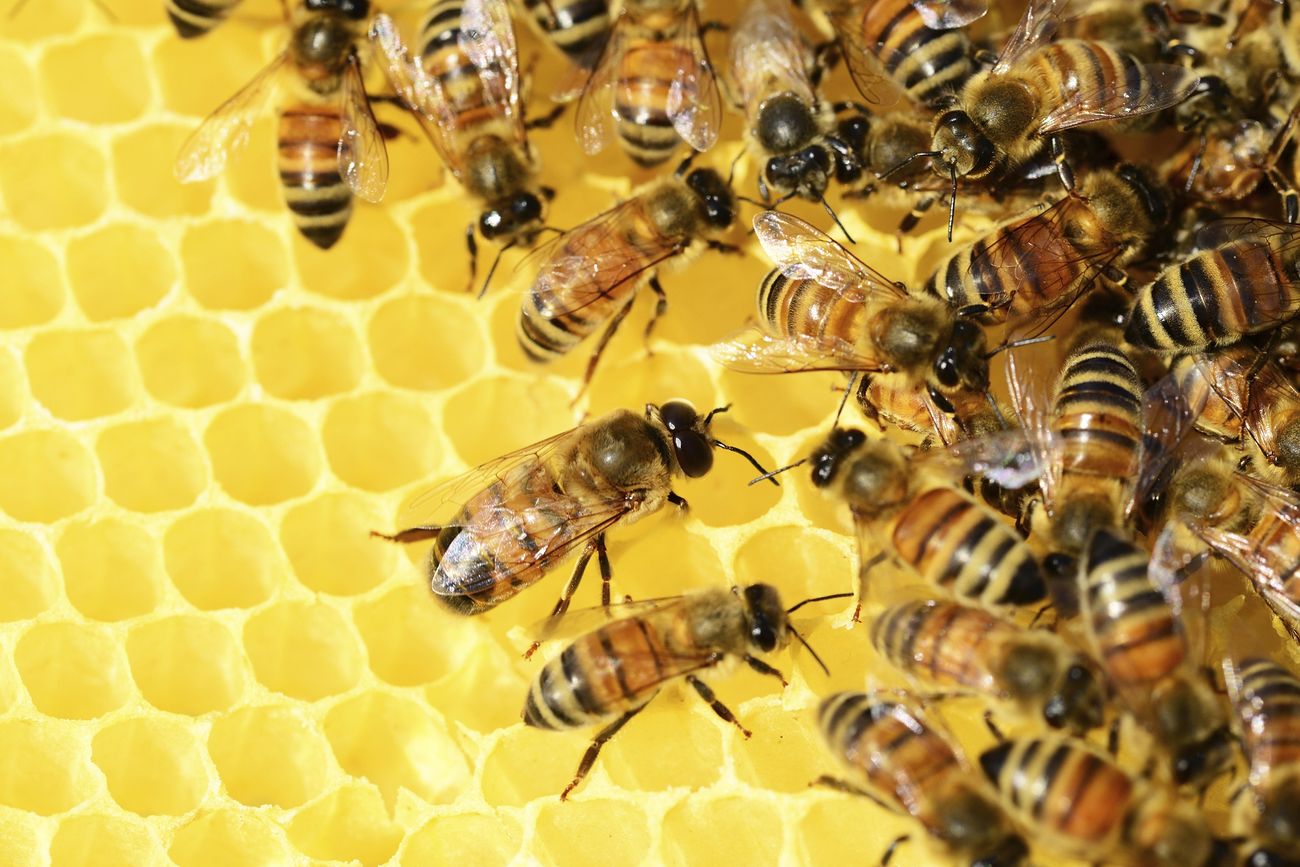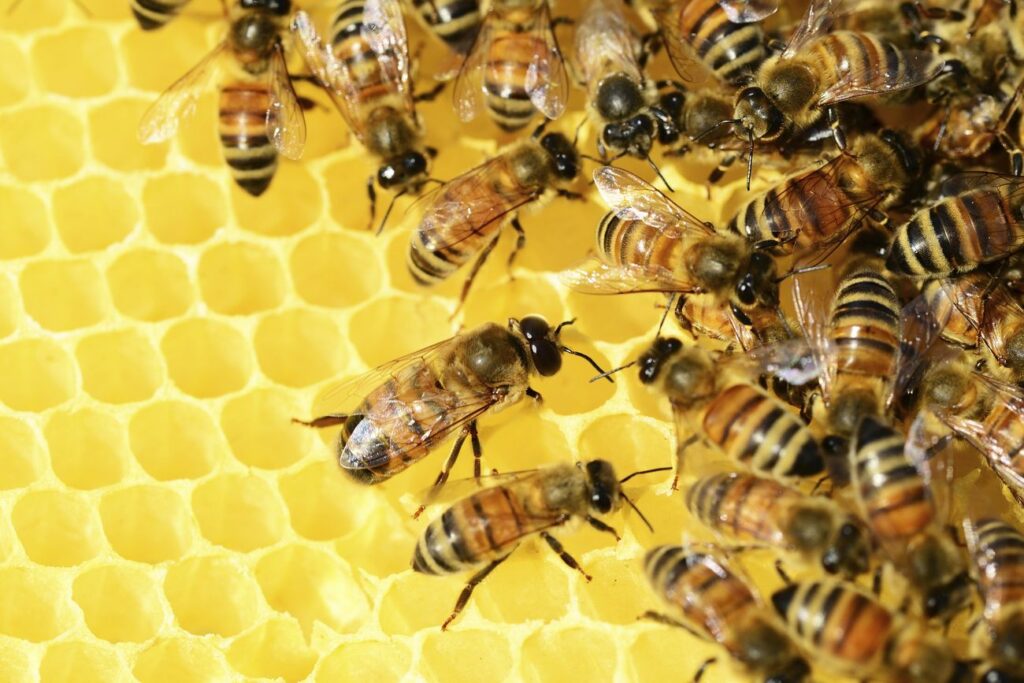
 Voice of Lango
Voice of Lango

 Voice of Lango
Voice of Lango
20 May 2025, 5:56 pm

By Olomo Joshua
Farmers in the Lango subregion have raised concerns about the continued use of agrochemicals, warning that this is endangering bee populations.
They warn that the decline could significantly impact crop yields visa vie food security.
The warning coincides with World Bee Day, observed today to highlight the critical role bees play in global food security.
Becky Akullo Olet, Director of NEWA Farms Limited in Bar-apwo, Lira city, emphasised that bees and other pollinators are vital to agricultural productivity through their role in flower pollination.
Eunice Acen, Chairperson of the Kairomo Produce and Selling Women Group in Akali subcounty, Kwania district, expressed concern over the noticeable decline in both crop pollination and honey production.
She attributed this trend to widespread deforestation—destroying natural bee habitats—and the extensive use of synthetic fertilisers and pesticides.
Geoffrey Ogweny, the Entomology Officer for Apac district, noted that bees are responsible for pollinating up to 90% of the world’s flowering plants.
He urged farmers to shift from artificial fertilisers and pesticides to organic alternatives in order to safeguard bee habitats and promote sustainable agriculture.
To highlight the vital role of pollinators, the threats they face, and their importance to sustainable development, the United Nations designated May 20 as World Bee Day.
On this day Anton Janša, the pioneer of beekeeping, was baptized in 1734.
The UN reports that three out of four food crops worldwide that produce fruits or seeds for human consumption depend, at least in part, on bees and other pollinators.